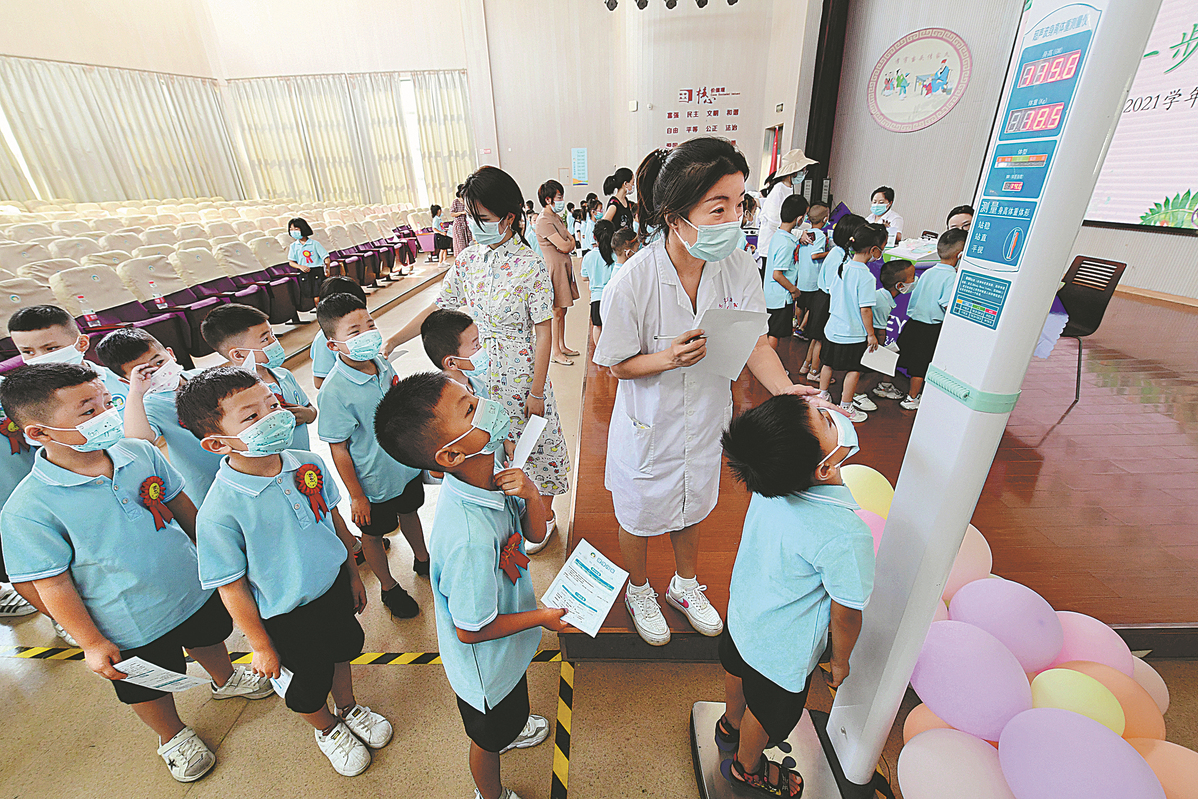Parents fret over offspring who fail to measure up


Medical advice sought as children's height causes concern
Luo Yan and her husband are above average height, but their two daughters, ages 9 and 10, are no taller than many of their classmates.
Early last month, Luo took the girls to a Shanghai hospital to inquire if they needed to use a growth hormone.
Li Pin, a pediatric endocrinologist, checked the bone ages and sex hormone levels of the girls, who are 135 centimeters and 149 cm tall, respectively, and told their mother that their genetic heights are both 167 cm and there is no need for them to have a growth hormone injection.
Bone age is a measure of the degree of skeletal maturity of a child, while genetics play a key role in determining height, which as a general rule is based on how tall a person's parents are.
Li finally managed to persuade Luo to abandon the idea of growth hormone injections after telling her both girls are growing normally and healthily. They do not have any signs of sexual precocity-the onset of secondary sex characteristics at an earlier age than expected, typically before age 6 to 8 in girls, or 9 in boys.
Pediatric endocrinologists, including Li, said they are frequently consulted by parents such as Luo, whose children are not short compared with their peers and who are not expected to be short as adults. The parents simply want them to grow taller.
Li, director of the endocrinology department at the Children's Hospital of Shanghai, said, "If we ask the parents how tall they want their sons to be, most of them say 175 cm is the bottom line, but some say it's 180 cm.
"Children's height has become an issue that has triggered parental concern, in addition to the academic performances of offspring. Everybody wants a perfect child and nobody wants their child's height to be below average," she said.
Doctors said the National Health Commission's Women's and Children's Department calculates the average height of children at different ages every decade. Those whose heights fall below a 3 percent average on the national health chart are considered short.
Li said, "Chinese are growing taller in general, but there are always people below the 3 percent line. Medically speaking, males taller than 1.60 meters and females reaching 1.50 meters are deemed healthy, but some parents are not satisfied with this."
A paper published in The Lancet medical journal last year about height and obesity trends in teenagers said Chinese were the tallest such group in East Asia, surpassing their counterparts in Japan and South Korea.
Over the past 35 years in China, the average height of 19-year-old males has risen by 8 cm to 175.7 cm, while the average height of females of the same age had risen by 6 cm to 163.5 cm.
However, a survey released by Health Times and Beijing Children's Hospital in December found that nearly 66 percent of parents said they thought their children were short.
























